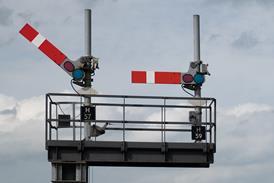INTRO: In recent years railways in different countries have lost status and importance, to the point that working in the industry is not considered ’cool’. Sweden’s infrastructure authority is seeking to change this perception, so that young people will want to work in the railway business in the future
BYLINE: Jan Hammarqvist
Director, Rail Training, Banverket
BECAUSE the state-owned railway in Sweden has in the past been a closed internal market, there has been no tradition of using the public education system to learn about railways and railway engineering. Only recently has Banverket begun to co-operate with universities and colleges. And as part of this process its railway training centre, Banskolan, has established a valuable link with higher education establishments.
The break-up of Swedish State Railways after 1988 blurred the traditional career paths, and staff working for one company do not now get a natural understanding of other parts of the rail business in the way that they used to. Nevertheless, the government’s commitment to increased long-term investment and rising passenger traffic indicate that the railways still offer a good career prospect for the future.
With the initial split of infrastructure from operations, Banverket assumed responsibility for Banskolan. Located at ??ngelholm, the centre provides most technical training for railway careers in Scandinavia. In 2002 no less than 6200 students attended courses here. While most were from Scandinavia, many came from other railway companies all over the world. These students completed 620 courses in topics ranging from operations management to track, signalling and electrification maintenance. Courses are usually held in a Scandinavian language but some are also conducted in English.
At the moment Banverket takes on students at three entry levels:




















